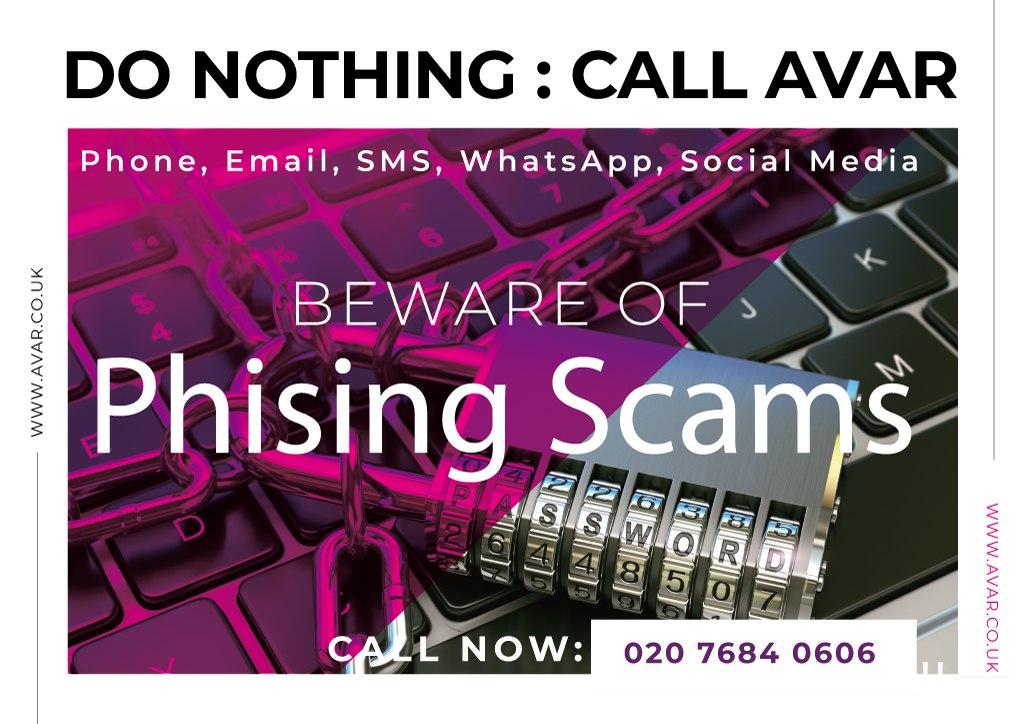- Activity by fraudsters is on the rise claiming they are calling as HMRC
- Many forms of scams are being carried out using:
- Phone, Email, SMS, WhatsApp, Social Media
- However, very little by Telegram – Used by Avar primarily
- How to Protect yourself from scams
- Do nothing
- Always inform Avar – immediately and seek advice
- Recognise the signs – HMRC will never contact you directly.
- Don’t give out any private information
- Don’t reply to any communication
- Don’t download any attachments
- Don’t click on any links in emails
- Forward suspicious emails and details of calls claiming to be from HMRC to [email protected] and texts to 60599
- The link below this video give examples of common phishing scams:
HMRC Guidance
HMRC’s Interim Director General for Customer Services, Karl Khan, said:
“We know that criminals take advantage of the Self Assessment deadline to panic customers into sharing their personal or financial details and even paying bogus ‘tax due’.
“If someone calls, emails or texts claiming to be from HMRC, offering financial help or asking for money, it might be a scam. Please take a moment to think before parting with any private information or money.”
Pauline Smith, Head of Action Fraud, said:
“Criminals are experts at impersonating organisations that we know and trust. We work closely with HMRC to raise awareness of current scams and encourage people to report any suspicious calls or messages they receive, even if they haven’t acted on them, to the relevant channels. This information is crucial in disrupting criminal activity and is already helping HMRC take down fraudulent websites being used to facilitate fraud.
“It’s important to remember if you’re contacted out the blue by someone purporting to be from HMRC asking for your personal or financial details, or offering you a tax rebate, grant or refund, this could be a scam. Do not respond, hang up the phone, and take care not to click on any links in unexpected emails or text messages. You should contact HMRC directly using a phone number you’ve used before to check if the communication you have received is genuine.
“If you’ve been the victim of fraud, contact your bank immediately and please report it to Action Fraud online at actionfraud.police.uk or by calling 0300 123 2040.”
Customers can report suspicious activity to HMRC at [email protected] and texts to 60599. They can also report phone scams online on GOV.UK.
HMRC is also warning the public to be aware of websites that charge for government services – such as call connection sites – that are in fact free or charged at local call rates. Other companies charge people for help getting ‘tax refunds’. One way to safely claim a tax refund for free is to log into your Personal Tax Account.
HMRC has a dedicated Customer Protection team that identifies and closes down scams but asks the public to recognise the signs to avoid becoming a victim. HMRC regularly publishes examples of new scams on GOV.UK to help customers recognise phishing emails and bogus contact by email, text or phone.

